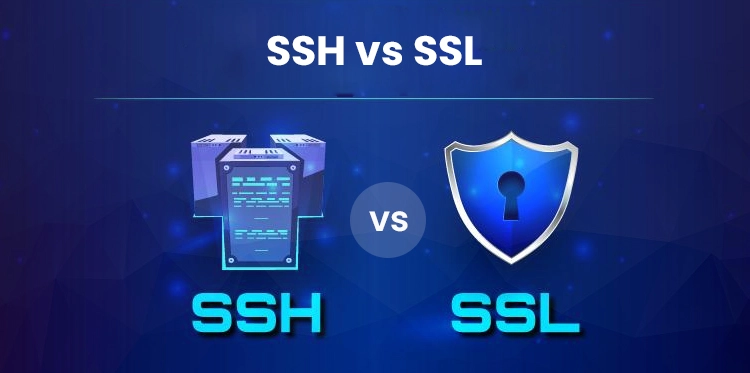It’s time to demystify the age-old battle between SSH vs SSL! Securing your online presence has become paramount, it’s crucial to understand the fundamental differences between these two powerful cryptographic protocols.
Whether you’re a tech enthusiast or a professional navigating through the intricate world of cyber security, join us as we unravel the complexities surrounding SSH vs SSL!
Together, we’ll decode their strengths, weaknesses, and guide you towards choosing the right one for your specific needs. So grab your cyber-shields because this showdown is about to begin!
What is SSH?
Secure Shell (SSH) is a cryptographic network protocol used to secure data communications between two computer networks. Secure Shell uses the public key cryptography to authenticate remote system and allow it to authenticate user.
SSH provides a secure channel over an insecure network in which data can be exchanged. SSH also allows users to access a remote system using a secure tunnel. This tunneling ability allows users to securely connect to a remote host or network by encapsulating all data traffic in the SSH session.
SSH can also be used for other purposes such as file transfer, forwarding traffic, and mounting file systems.
What is SSL?
SSL (Secure Sockets Layer) is a protocol that provides security for communication between server and client by creating an encrypted connection. This encrypted connection ensures that all data passed between the web server and browser remains private.
SSL is an industry-standard protocol and is used by millions of websites to protect their online transactions with their customers.
Differences between SSH and SSL:
There are two common protocols for secure communications between computers SSH vs SSL. Both have their own strengths and weaknesses, so it’s important to understand the differences before choosing which one to use.
| SSH | SSL |
| SSH stands for Secure Shell | SSL stands for Secure Sockets Layer |
| SSH is typically used for terminal connections and file transfers | SSL is a protocol for secure communication between web servers and clients and for securing web traffic |
| SSH uses strong encryption methods to ensure that data can’t be intercepted and read by unauthorized users | SSL also uses strong encryption, but it additionally uses certificates to authenticate the server that you are connecting to |
| It uses strong encryption and authentication to protect data in transit | It uses encrypt data in transit |
| Implemented in terminal emulators and SSH clients and servers | Implemented in web browsers and web servers |
| Operates at application layer that is Layer 7 | Operates at transport layer that is Layer 4 |
Conclusion
In conclusion, understanding the differences between SSH vs SSL is important for any organization that deals with sensitive information. While both protocols can help secure data in transit, they have different strengths and weaknesses, so it’s essential to choose the right one for your needs.
As you weigh which protocol is best suited for your organization’s security needs, make sure to consider the range of features each offers before making a decision.

